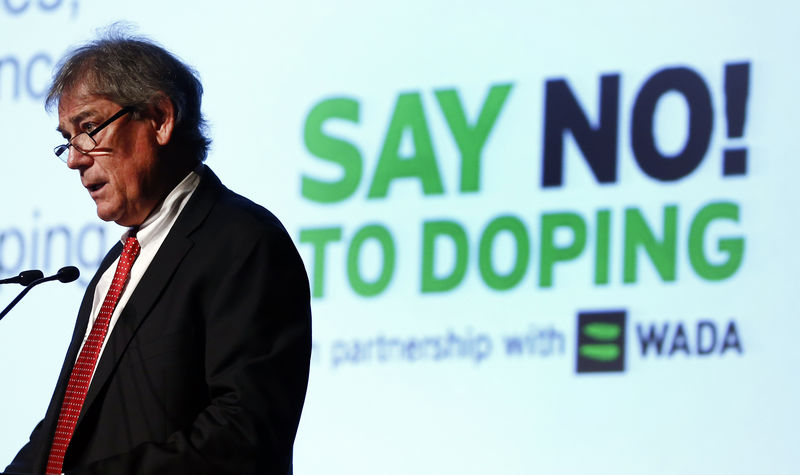By Alan Baldwin
LONDON (Reuters) - Drug testing methods in sport are still rooted in the 1970s and better technology is needed to catch more than "dopey dopers", former World Anti-Doping head David Howman said on Tuesday.
Speaking at a conference organised by the Partnership for Clean Competition (PCC), Howman told delegates there had to be more effective systems.
"We all know that urine analysis has not advanced much," said the New Zealander, who left the World Anti-Doping Agency (WADA) in 2016 and is now chairman of the Athletics Integrity Unit.
"We're still in a position where we're getting the same number of positive cases each year, and many of them are in the category of what I call the 'dopey dopers' - the inadvertent dopers, or the ones who are just darned stupid."
Howman, a lawyer, said he had been reproached in his time at WADA by scientists for not considering more innovative technology.
"We've worked out other ways of doing forensic science in terms of solving crime. Why aren't we doing something more innovative?" he told Reuters.
He mentioned thumb- or finger-pricking tests, which other experts said could become painful over time and were also a sensitive issue for athletes using their hands, or airport-security-style scanning.
A later presentation discussed capillary collection devices, which are less invasive than venous sampling.
Matthew Fedoruk of the U.S. Anti-Doping Agency (USADA) said such alternative methods were being tested but urine samples remained the 'gold standard'.
Howman, who explained that he was trying to provoke and challenge, said the main thing was to look at the latest technology from an anti-doping standpoint.
"We're still doing something that was done in the 1970s. How many of you turn on the wireless? That's what we were doing in the 1970s. How many have got a phone on a cord? We're stuck when it comes to anti-doping process," he said.
Dope tests at the Olympics were introduced in 1968, with WADA founded in 1999.
Howman said urine tests were too easy to circumvent and too expensive, costing in some cases $1,000 per sample for a private collection agency to carry out and send to a laboratory.
He added that of samples collected and analysed by WADA-accredited laboratories in 2017, only 1.43 percent resulted in adverse analytical findings - or about 0.6 percent when approved medical exemptions were excluded.
"Science and medicine have advanced everywhere but they haven't advanced in doping, we're still analysing urine. And not very darned well," he said.
"My worry is that we still do it because it's the way to build up numbers. Not the way to catch the cheats. There's a misguided view that perhaps its deterring people.

"Well, it's catching the stupid ones because they just are stupid. But it's not catching the real cheats."